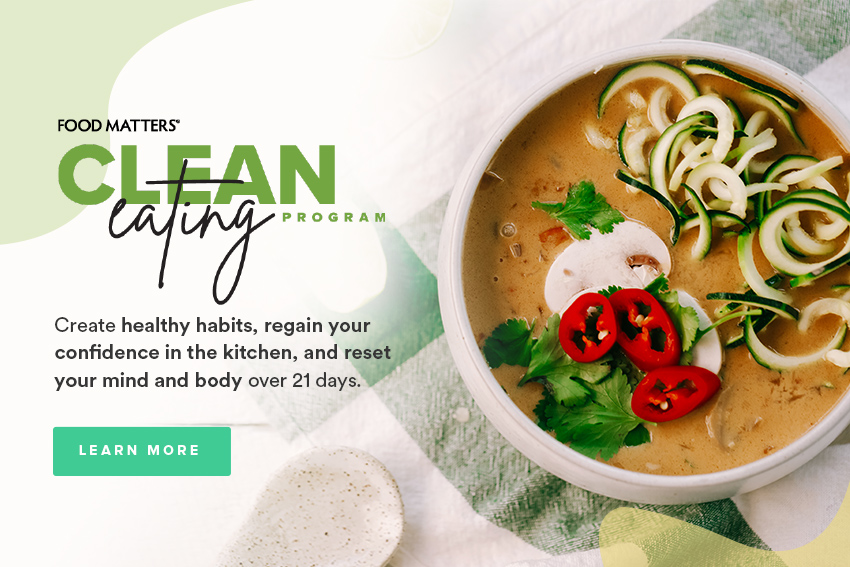How To Choose A Healthy Vegan Protein Powder
When choosing a protein powder, it’s best to keep things as pure and clean as possible. But how do you know what to look for to find the best type? Follow our simple guide to determine which one is right for you!
The Base
If you can tolerate whey protein, your best choice is pure grass-fed organic whey. But if dairy is not your thing, there are many protein powders available that are completely dairy-free and vegan-friendly!
We recommend choosing a vegan blend that is based on pea protein. Pea protein is a vegetable protein source rich in essential amino acids (comparable to animal protein sources), and is easily digestible, absorbable and well tolerated by most people - meaning no bloated belly or other digestive discomforts!
A great protein blend should also be ‘complete’. What does that mean? Well, all proteins are made up of amino acids; even the ones in your body! Your muscles, skin, hair, tendons, and cartilage are all made of amino acids. Think of them as the building blocks to proteins. Our body uses 20 different amino acids to create all kinds of proteins that make up our body e.g. enzymes, hormones, cell walls, etc. Even though they are all crucial for our bodies to function, we are unable to make 9 of them ourselves. These are the essential amino acids and we need to get these from our food. Any protein source that is ‘complete’ means that it contains all 9 essential amino acids. So as long as the protein blend you choose contains all nine, then your body can use it easily to replenish, restore and repair your body!
Flavors And Sweeteners
Many manufacturers like to add all kinds of chemically-created artificial sweeteners, flavors, and even colors! This does nothing to boost your body’s ability to absorb or utilize the protein. Instead, it can actually create a chemical mixture that may mess with your hormones and prevent you from reaching your goals!
Most proteins fall into 3 categories according to flavorings and sweeteners:
Artificial, or a combination of artificial and natural sweeteners and flavors. Think long lists of ingredients you can’t pronounce or recognize as real foods such as aspartame, sucralose, and neotame! They also typically have ‘dessert’ style flavors such as cookies and cream, bubblegum, and banana cream pie. If they taste quite similar to the real thing, those flavors aren’t created naturally!
Only natural flavors and sweeteners. The ingredients list may show items such as the very vague ‘natural flavor’, and contain naturally derived, but most often than not, overly processed versions of sweeteners including stevia, monk fruit, and sugar alcohols e.g. xylitol, sorbitol. Stevia and monk fruit can leave an artificial, unpleasant aftertaste, and the sugar alcohols can be problematic in those with sensitive digestive systems causing bloating, excessive gas and digestive discomfort!
No added flavoring or sweeteners at all. The best type of protein is the simple kind. Just pure wholesome ingredients that blend well with whatever you put it with. This category includes those that have added spices which naturally act as a gentle sweetener and flavoring e.g. cinnamon and vanilla, or cacao and mesquite. But it also includes the pure, unflavored protein blends. Both are great options! When you choose a protein blend with real ingredients for flavor and sweetness, you’re not only getting a great tasting protein, but you’re supporting your body with added nutrients! The difference between these and unflavored? Choosing an unflavored blend simply allows you to mix it into both sweet and savory dishes. Regardless of whether you choose unflavored or gently flavored with natural spices, a wholesome, simple blend will help reduce your risk of tummy trouble and exposure to harmful ingredients, giving you pure, protein goodness that can support your daily needs!
The Extras
Besides protein, flavors, and sweeteners, many manufacturers add other ingredients to enhance the product’s nutritional value or taste, or to make it easier to use. Some of them do nothing for our health, but others can be beneficial, including prebiotic fibers, digestive enzymes, probiotics, glutamine, vitamins, and minerals. However they’re not necessary to make a great protein, and whether you choose a blend that has them added in or not is completely up to you!
How Much Do I Need?
Everybody differs with the amount of protein they need daily. However, the body can only absorb around 20g of protein at each meal/snack. So going way over this amount (like some protein blends do) just creates extra work for your kidneys as you’ll only wee it out! The average adult only requires around 0.8g of protein per kilogram (2.2 pounds) of body weight per day. But depending on your activity levels, athletic goals and other requirements, your needs may be greater or less than this amount. Choose a blend that has around 10-15 grams per serving so you can simply adjust how much to have according to your needs!
Whether you’re a regular gym goer, a busy parent, or a business executive that needs a quick snack solution, the addition of a quality protein powder can help you stay full, energize you and ensure you’re getting all the amino acids your body needs to perform at its best, no matter what your day brings!
Take the stress out of cooking with 21-days of guided meal plans, shopping lists, and nutrition support. You’ll find all of this, and more, in our signature Clean Eating Program.










